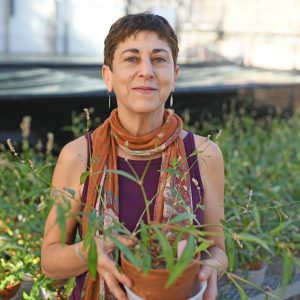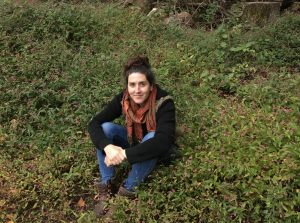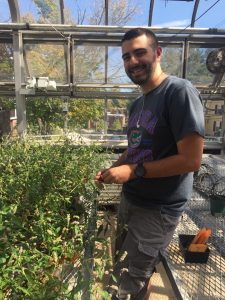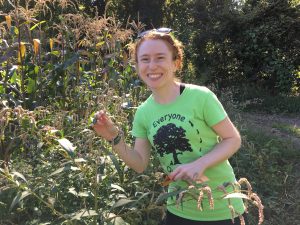Sonia Sultan, PI
Email: sesultan@wesleyan.edu
Ellen Woods
 PhD candidate
PhD candidate
Email: ewoods@wesleyan.edu
I’m broadly interested in understanding the evolutionary importance of transgenerational environmental effects. More specifically, I use the newly invasive annual plant, Polygonum cespitosum, to investigate whether transgenerational responses from naturally occurring microsite variation are an important source of fitness variation and whether these transgenerational responses can evolve at the population level. I work with plants in both the field and greenhouse, and when I don’t, I find myself photographing them: https://www.instagram.com/endlessformsphoto/

Tim Earley
PhD candidate
Email: tearley@wesleyan.edu
My work investigates the molecular mechanisms of transgenerational plasticity, integrating RNA-seq, methylation sequencing, and traditional genomic techniques. My goal is to identify specific epigenetic changes and their transcriptional consequences that result from different parental environmental conditions. I do this by examining the effects of parental sun versus shade in the generalist annual plant Polygonum persicaria. In future projects I aim to establish the lifetime effects of parental environment by examining transcription and DNA methylation across multiple time points of the plant lifecycle.
Robin Waterman
 BA/MA candidate
BA/MA candidate
Email: rwaterman@wesleyan.edu
I am primarily interested in applying eco-evolutionary theory to human-managed ecosystems. Through land conversion, chemical pollution, and climate change, humans impose strong selective pressures on organisms across varied ecosystems. This creates a critical need to illuminate the evolutionary consequences of various ecological management practices, including biodiversity conservation, sustainable agriculture, and habitat restoration. These applications are intimately connected by similar theoretical underpinnings. The goal in each case is to actively manage land in a sustainable fashion, usually by leveraging nature’s already evolved solutions. My research has focused on studying the transgenerational effects of the parental light environment and competitive environment on offspring phenotypes in Polygonum persicaria by conducting greenhouse experiments and collecting data in the field. Next year, I will be pursuing a PhD in Ecology and Evolutionary Biology to further explore my intellectual interests and their real-world applications.

